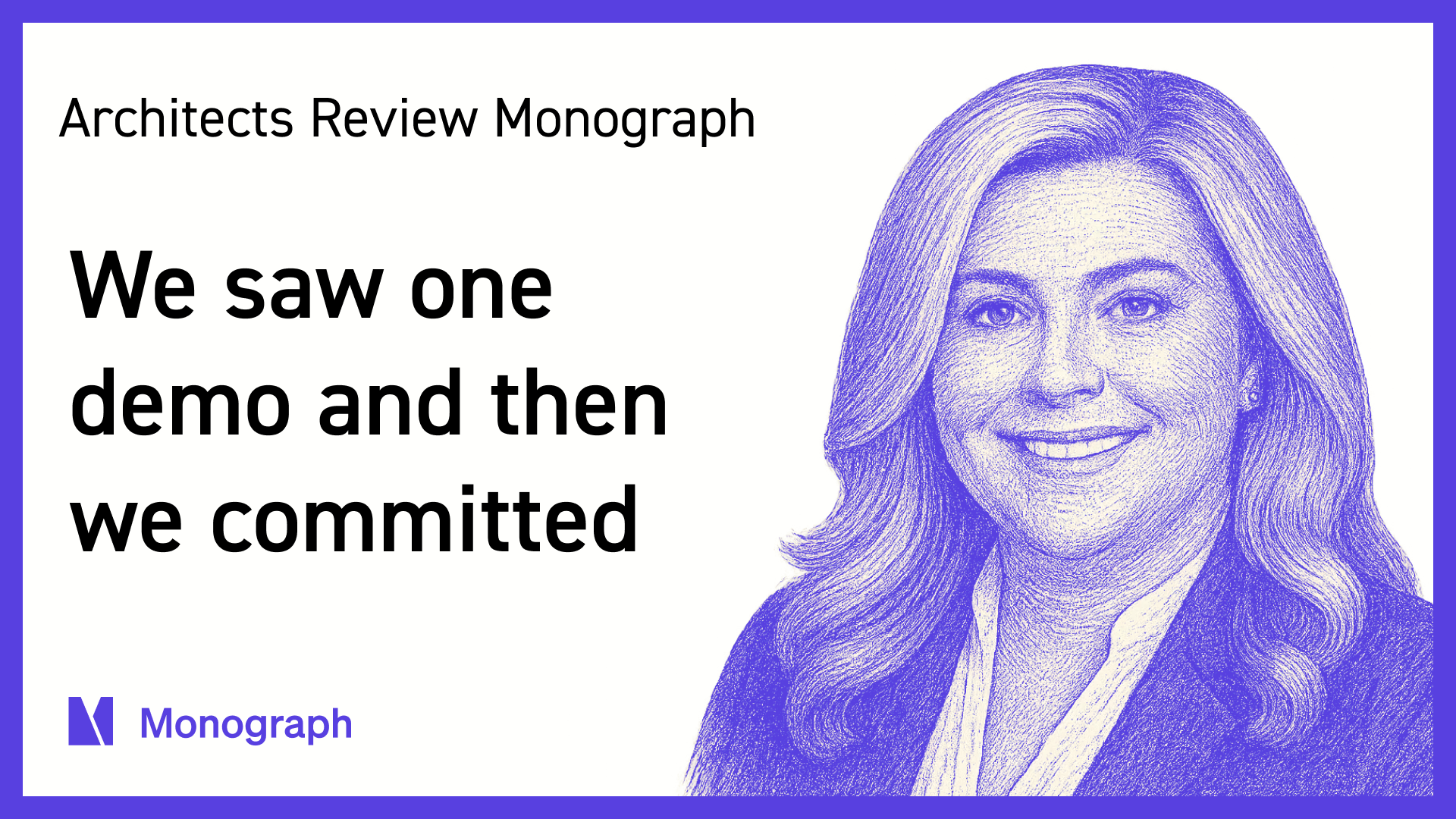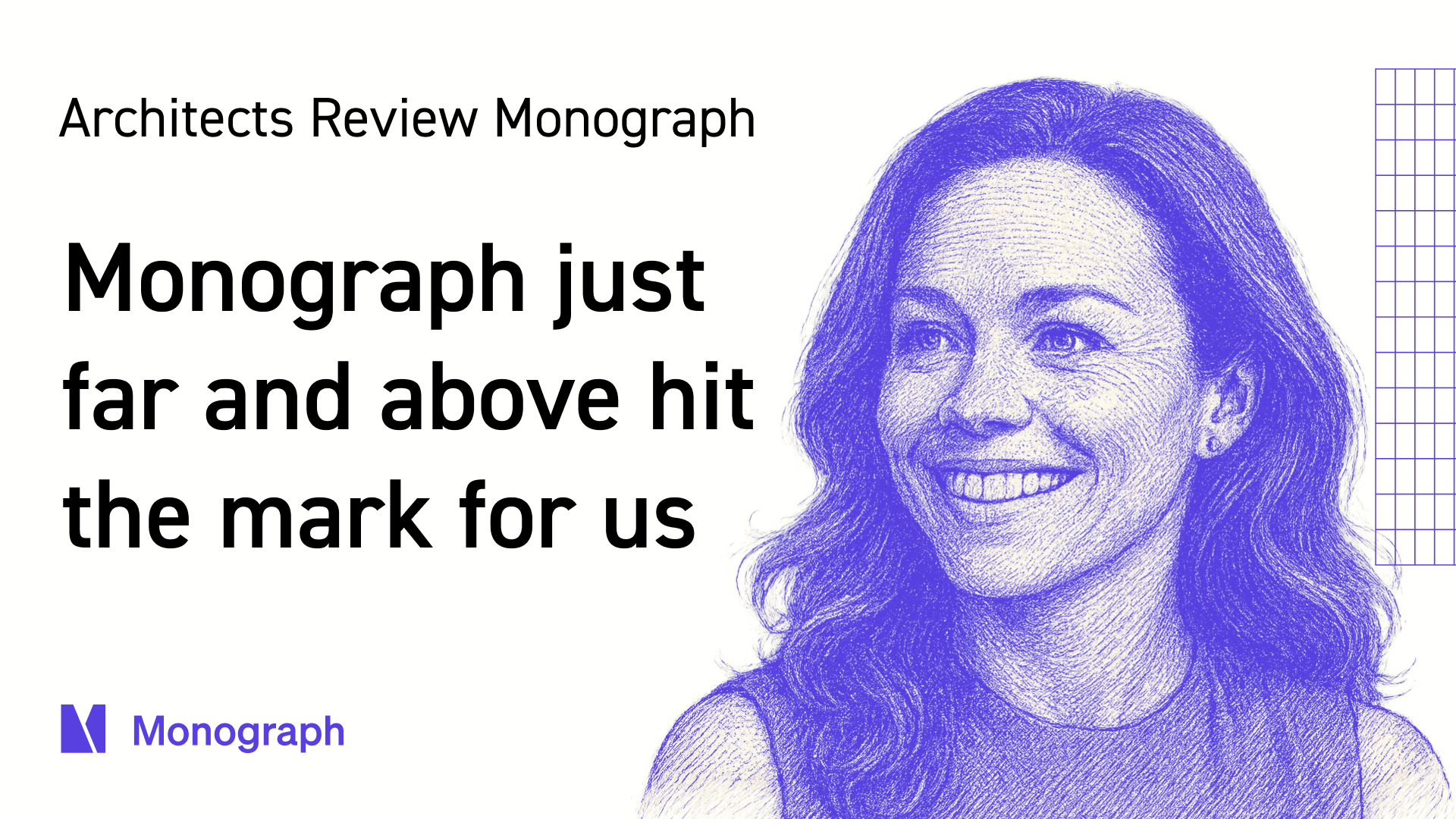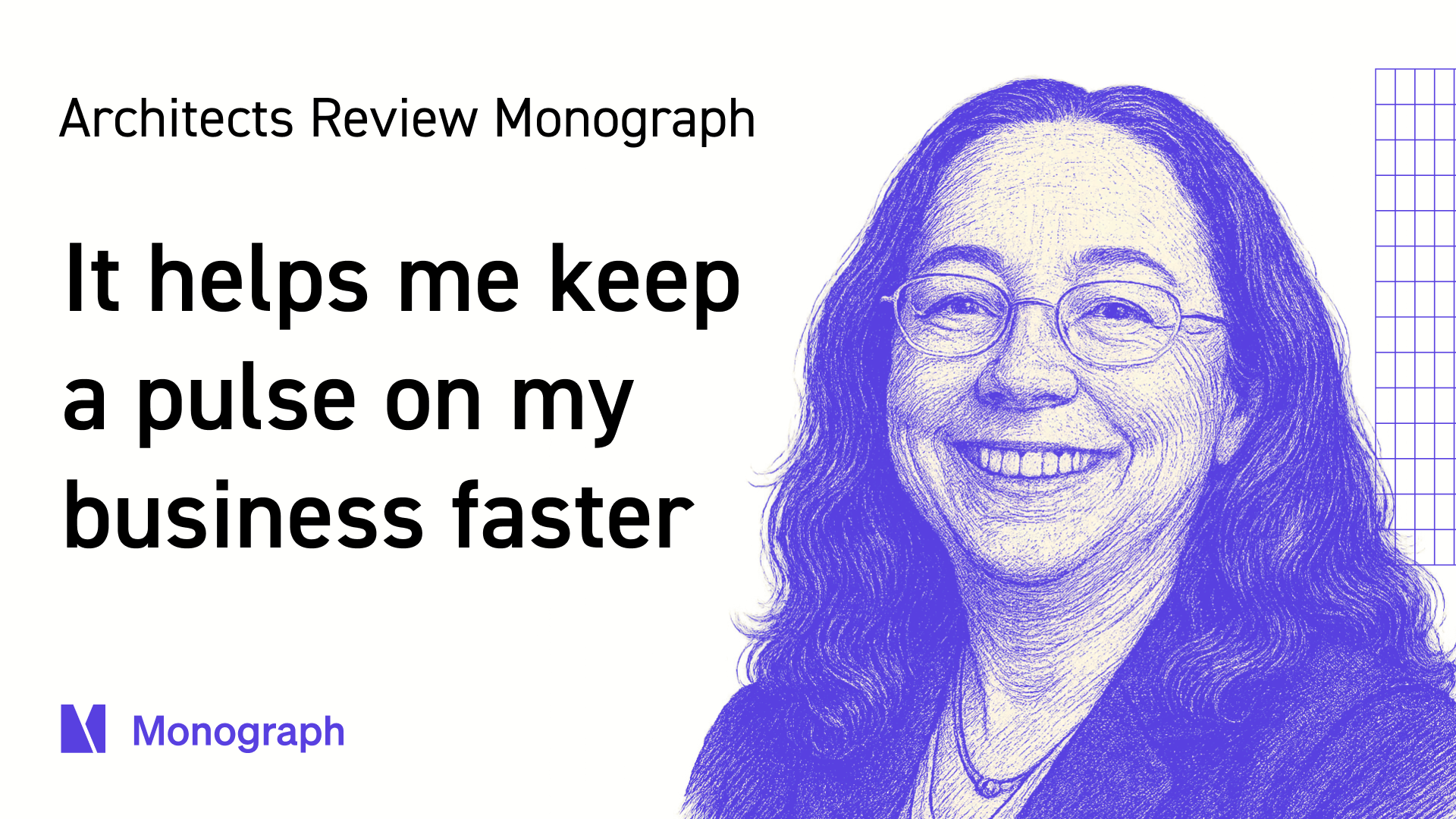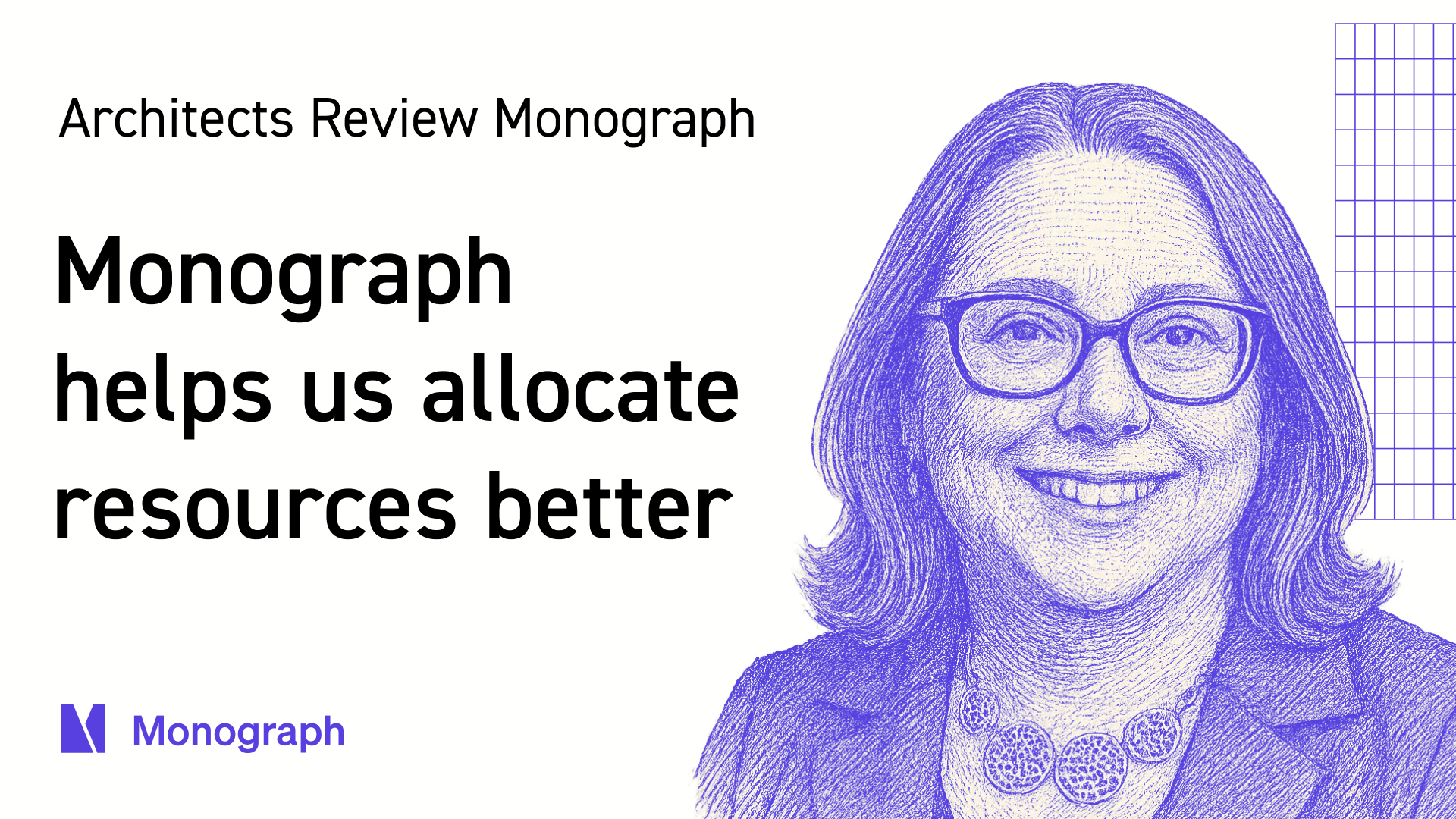Contents
Firm profile
Rescale Design Collab is a boutique architecture and interiors firm founded by Danielle Elzahr and Bryan Anthony Alzati, two former corporate architects who wanted to focus on design instead of fighting with internal systems. With three people and a network of production partners, they work with enterprise-level clients while maintaining the personal attention that only a small firm can provide. Their model is straightforward: senior architects handle design and strategy, while production work gets outsourced to specialists.
Custom tools create more problems than they solve
Danielle Dicharry Elzahr AIA, LEEP AP and Bryan Anthony Alzati had seen what sophisticated systems looked like at large corporate firm. They'd also lived with the reality of how those systems actually worked day-to-day. Despite millions invested in custom tools, the platforms often became productivity killers instead of productivity enhancers.
The daily experience was frustrating. Project managers spent hours updating databases that were supposed to help them manage projects. Simple changes triggered complex workflows. What should have been quick updates turned into administrative marathons. Even at management level, they found themselves spending more time maintaining tools than using them to deliver better work.
But starting their own firm meant facing a tough choice. They could accept that going independent meant stepping backward operationally, or they could find a way to maintain professional standards without the big firm overhead. With enterprise clients expecting the same level of polish they'd experienced at their corporate firm, amateur operations weren't an option.
"We both were at a large firm that had invested in building their own tools, and as much as they had invested in building their own tools, it wasn't as seamless as Monograph."
– Danielle Elzahr, Principal Architect, Rescale Design Collab

Looking for software that understands architects
The search for business tools quickly revealed how poorly most platforms serve design firms. Standard accounting software breaks down with project phases and consultant coordination. Generic project management tools miss the financial integration that determines whether projects are profitable. Most invoicing platforms look unprofessional compared to what enterprise clients expect from their service providers.
Danielle and Bryan knew exactly what they needed because they'd experienced both good systems and broken ones. They wanted enterprise-level functionality without the complexity that made their previous experience so frustrating. When Bryan saw a Monograph ad on Instagram, the timing couldn't have been better.
After one demo, they were sold. Monograph offered project management built specifically for how architecture firms work, invoicing that met their professional standards, and financial tracking that actually helped make business decisions instead of creating more administrative work.
"We were specifically looking for a system similar to what we had at our previous large firm. More malleable to us, but could also service a bigger firm."
– Bryan Anthony Alzati, Principal Architect, Rescale Design Collab
From idea to operations in 30 days
Most new firms expect months of operational growing pains while they figure out basic business systems. Rescale skipped that entirely. They had Monograph implemented and their first professional invoice sent within 30 days of making the decision to start their firm.
The speed wasn't just about efficiency—it was about credibility. When you're competing with established firms for the same clients, you can't afford to look like a startup that's still figuring things out. Their clients needed to see the same level of operational sophistication they'd come to expect from larger firms.
Their payment strategy proved especially smart. They use QuickBooks for backend accounting where Monograph integrates seamlessly, but handle all client invoicing and payments through Monograph's Stripe integration. The fee savings are substantial—especially important when you're dealing with commercial contracts where individual invoices can be significant amounts.
The results exceeded their expectations. Average invoice collection hit 27 days—actually faster than what they'd experienced at their previous firm. The difference came from Monograph's clear invoice formatting, integrated backup documentation, and streamlined payment processing that made it easy for clients to pay quickly.
"In 30 days we had Monograph. Our very first invoice was with Monograph."
– Danielle Elzahr, Principal Architect, Rescale Design Collab
The surprising reality of running your own firm
Everyone warned them about the administrative burden of business ownership. The warnings turned out to be wrong. With the right tools, running a three-person practice created less bureaucratic overhead than working at a 5,000-person firm.
At their previous firm, management-level work meant constantly updating systems that should have been helping, not hindering, project delivery. Data lived in multiple platforms that rarely communicated with each other. Simple tasks became complex because everything had to fit the enterprise framework, regardless of whether that made sense for the actual work.
Running their own firm with Monograph flipped that equation completely. They spend their time on projects instead of maintaining tools. Business operations that used to consume hours now run automatically in the background. They've accidentally discovered that the right small business tools can be more efficient than enterprise systems.
"We want to focus more on the design side of things than the business side of things. This really lets you autopilot the business."
– Bryan Anthony Alzati, Principal Architect, Rescale Design Collab
A better way to practice architecture
Rescale didn't just avoid typical startup struggles—they created a more efficient way to run an architecture practice. By choosing tools that actually work for design firms instead of fighting against them, they freed up time and energy to focus on what they do best. Their clients get the same professional service they expect from large firms, combined with the personal attention that only a boutique practice can provide.
The lesson for other architects considering independence is clear: you don't have to choose between operational sophistication and small firm agility. The right business systems make both possible from day one.
Ready to build your firm without the growing pains? Get started with Monograph


